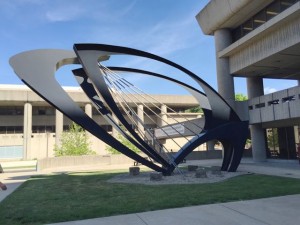 •Only Nominally Over Executive Compensation.
•Only Nominally Over Executive Compensation.
•Trustee requests for information and oversight rebuffed.
•Audit called for.
Readers will note that I have not posted anything for over a month. In truth, I was in Europe for three weeks and am just now getting over a jet-lagged recovery. This was to be an “unplugged” holiday. My long-suffering wife likes to tell the story of how I once almost missed our connection in the Amsterdam Airport waiting to upload a post over the free McDonald’s internet connection. She has other stories too! Indeed, I admit to occasionally feeling guilty of insufficient spousal attention during our travels in these hyper-connected times.
Always something to write about.
I did cheat on this good woman a little by occasionally peeking at the news. It is not that there was nothing I like to write about! Several updates of existing hospital quality, safety, and performance ratings were released, as well as a new rating approach by U.S. News & World Report. Flanking these stories were scholarly reports addressing the same issues I have been raising about the reliability and usability of existing rating systems.
There was new data-hacking breach of over a million members at another health insurer. No one should feel safe! Medicare released a massive database of all outpatient drugs prescribed for those with Part-D drug coverage or in Medicare managed-care plans. The data is broken down by individual drug, healthcare provider, and cost and is already generating a flurry of attention. For example, it turns out that many of the top prescribers of specific drugs receive monetary payments from the manufacturer. [Naturally this does not influence their professional judgments!] I started looking at the drug database on the flight home– this wasn’t really cheating– and will have more to say future articles.
New Sunshine Act Data Release.
Entirely by coincidence, the next iteration of the federal database of payments to medical providers by device and drug manufacturers will be released in a month or so and will now list at least some payments to providers for continuing medical education (CME). These latter payments, previously undisclosed, provide a measure of the degree that manufacturers have taken control of what physicians and other providers think and do. If transparency and accountability is the goal of the Open Records Program (a.k.a. Sunshine Act), it was a critical error to have initially allowed payments for CME to remain hidden. The fact that such payments were exempted from disclosure attests to the lobbying power of both drug companies and the academic medical establishment.
UofL against the world (and its own Board?).
There were other items I filed away in my write-about-later folder, but the big-ticket item for Kentucky was the further unfolding, indeed explosion of nagging concerns over University governance and secrecy, fueled by revelations about executive compensation at the University of Louisville, and triggered by a recent call from a University Trustee and others for an external independent audit by Kentucky’s State Auditor of Public Accounts. The news reports of the Trustees’ meeting used words like “angrily,” “testy,” agitated,” “contentious,” “defiant,” and “lashes out” to describe the behavior or UofL President James Ramsey. All of this was in response to quite reasonable requests by responsible board members for information that either they or the public is entitled to. Comments to articles from the public on the three major Louisville markets were solidly against Dr. Ramsey’s positions, except for the reliable fan-boy or contract internet-troll for whom UofL can do no wrong. I found the reports of the apparent melt-down difficult to believe until, on my return, I had a chance to view a video clip of part of the encounter— it was worse than I thought. View it yourself. Was this justified indignity, staged outrage, or a hissy-fit? You be the judge. In any event, it must have been embarrassing for most of the folks present. Continue reading “Presidential Outburst at UofL Board Meeting. “
 The Federal Government has been releasing an avalanche of health care utilization data over the past very few years while the rest of use are still trying to figure out how to use the information. While there exists the potential to use the data to evaluate healthcare quality and safety, to ferret out best medical practices, to more efficiently use increasingly limited healthcare dollars, or to otherwise guide good public policy; the most apparent utility so far is to identify medical fraud. It is easier to justify looking for fraud than to confront entrenched interests dug in deep in this profitable segment of the economy.
The Federal Government has been releasing an avalanche of health care utilization data over the past very few years while the rest of use are still trying to figure out how to use the information. While there exists the potential to use the data to evaluate healthcare quality and safety, to ferret out best medical practices, to more efficiently use increasingly limited healthcare dollars, or to otherwise guide good public policy; the most apparent utility so far is to identify medical fraud. It is easier to justify looking for fraud than to confront entrenched interests dug in deep in this profitable segment of the economy.

